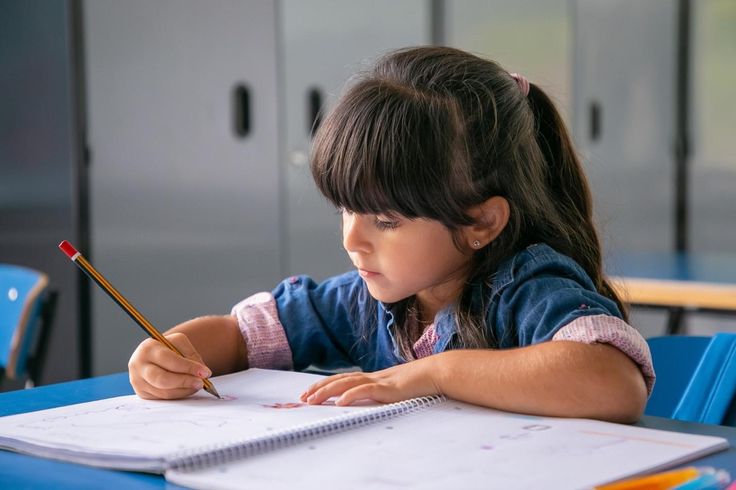Building Self-Confidence in School Years: A Guide for Parents, Teachers, and Counselors
School years play a crucial role in shaping not only a student’s academic foundation but also their self-confidence, personality, and emotional resilience. For students in Grades 8–10, these years are especially important as they face academic pressures, peer competition, and decisions that impact their future careers. Building confidence during this stage ensures that children grow into capable, independent, and motivated individuals.
Why Self-Confidence Matters in School Years
Confidence is not about arrogance it is about believing in oneself and having the courage to try, even if mistakes happen along the way. When students are confident, they:
- Participate actively in class discussions and activities.
- Develop resilience against peer pressure and bullying.
- Take ownership of their academic and personal goals.
- Make better decisions related to studies and career paths.
- Build healthy relationships with peers and teachers.
Common Challenges Students Face
Before we dive into building confidence, it is essential to recognize the challenges that can harm self-esteem in school years:
- Peer Pressure: Students often compare themselves with others in academics, sports, or social life.
- Academic Stress: Pressure to score high marks and choose the “right” career path can cause self-doubt.
- Bullying and Negative Environment: Hurtful remarks or exclusion by peers can damage self-worth.
- Fear of Failure: Many students avoid trying new things because of the fear of making mistakes.
- Lack of Parental or Teacher Support: Without proper encouragement, children may not realize their strengths.
How Parents Can Build Self-Confidence in Children
Parents play the first and most important role in a child’s self-belief. Here are some practical ways parents can nurture confidence:
1. Encourage Effort, Not Just Results
Instead of only appreciating marks, focus on the effort, creativity, and persistence children show in their work. For example, praise your child for attempting a tough math problem, even if the answer is incorrect.
2. Provide Opportunities for Independence
Allow children to make small decisions such as managing their pocket money or choosing extracurricular activities. This builds responsibility and decision-making skills.
3. Avoid Constant Comparisons
Comparing your child with siblings, cousins, or classmates lowers self-worth. Instead, focus on their unique strengths and help them improve at their own pace.
4. Model Confidence Yourself
Children learn by observing. Show them how you handle challenges calmly, without fear of failure. Your behavior becomes their inspiration.
Role of Teachers and Schools in Building Self-Confidence
Teachers and principals can have a huge impact on shaping a student’s personality. A supportive classroom environment creates space for children to grow. Some effective strategies include:
- Interactive Learning: Use group discussions, presentations, and project-based learning to involve every student.
- Positive Reinforcement: Recognize students’ efforts with appreciation and constructive feedback.
- Encouraging Extracurriculars: Sports, music, debates, or drama help students discover hidden talents.
- Safe Environment: Address bullying quickly to create a culture of respect and inclusion.
- Counseling Support: Provide access to career counselors who guide students in managing academic stress and career decisions.
Practical Activities to Boost Confidence in Students
Confidence cannot be built overnight. Consistent activities and real-life experiences help children trust their abilities. Some examples are:
- Public Speaking: Encourage children to participate in debates or storytelling to overcome stage fear.
- Group Projects: Working in teams improves leadership, communication, and collaboration.
- Sports and Fitness: Physical activity strengthens not just the body but also discipline and mental resilience.
- Creative Hobbies: Art, music, or coding projects allow students to express themselves freely.
- Goal Setting: Teach children to set small, achievable goals. For example, finishing a book in 10 days or improving test scores by 5 marks.
Career Guidance and Confidence
Students in Grades 8–10 are at a stage where career choices start becoming a concern. A lack of confidence can make them uncertain about their future. This is where schools and parents should introduce career counseling. Through expert guidance and AI-powered tools like those offered by EDVDO, students can discover careers that match their interests and abilities. For more resources, check out UNICEF’s guide on helping children build confidence.
Long-Term Benefits of Building Self-Confidence
When students grow up with confidence, the benefits extend far beyond school years:
- They perform better academically and professionally.
- They develop resilience against failures and life’s challenges.
- They make smarter choices in careers and relationships.
- They grow into leaders who inspire and guide others.

Conclusion
Confidence is like a muscle the more it is exercised, the stronger it gets. Parents, teachers, and counselors must work together to create an environment where children feel safe to express themselves, try new things, and learn from mistakes. Investing in self-confidence during school years is one of the best gifts we can give to children, ensuring they step into the future with courage and positivity.
What are your thoughts on building confidence in students? Share your experiences in the comments below, and don’t forget to share this article with parents, teachers, and school leaders who can benefit from it!




